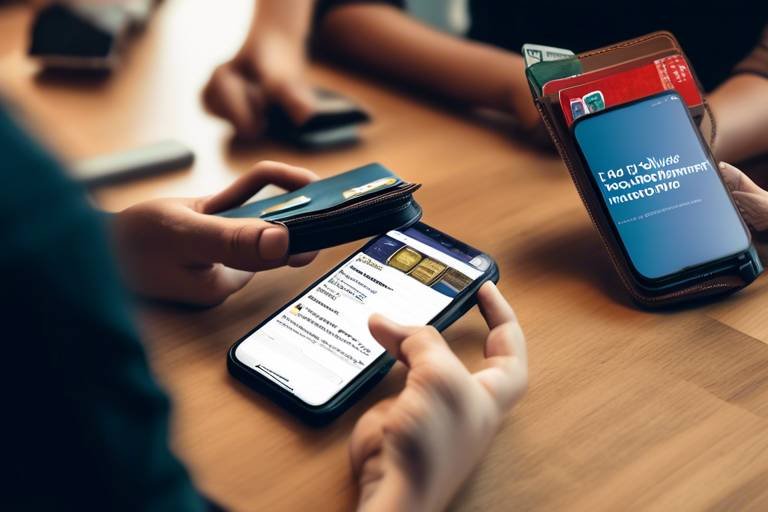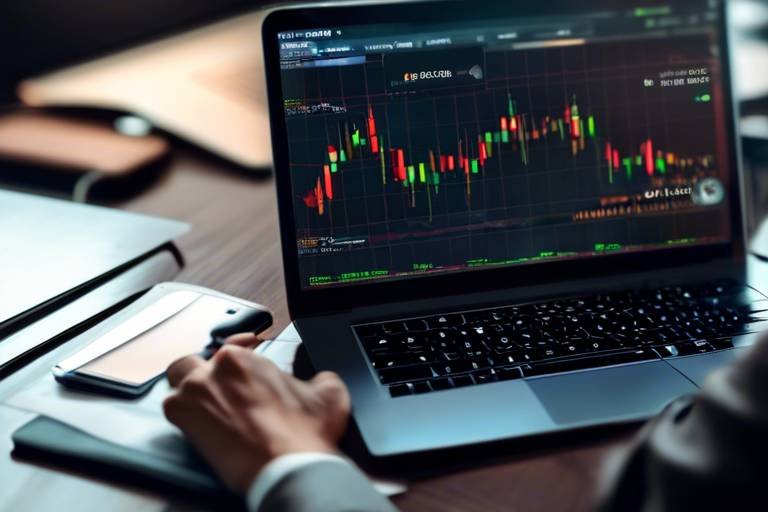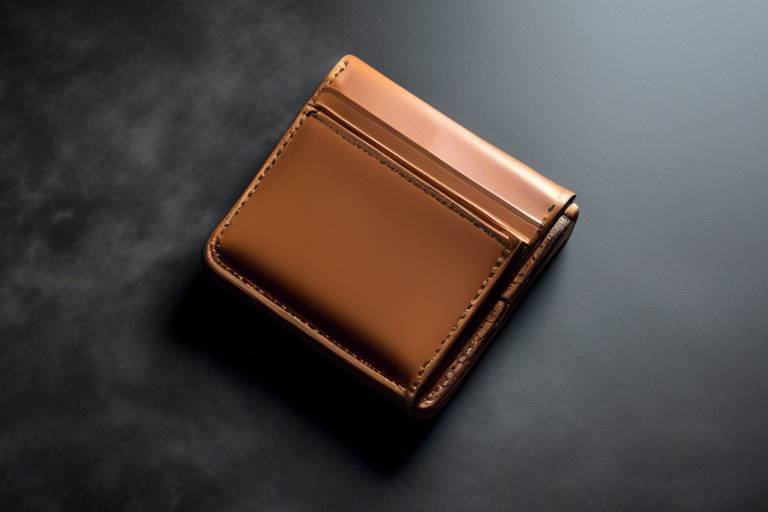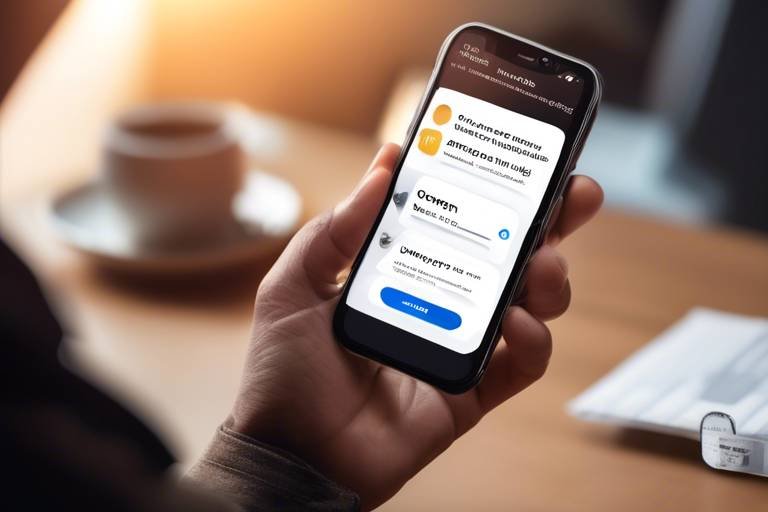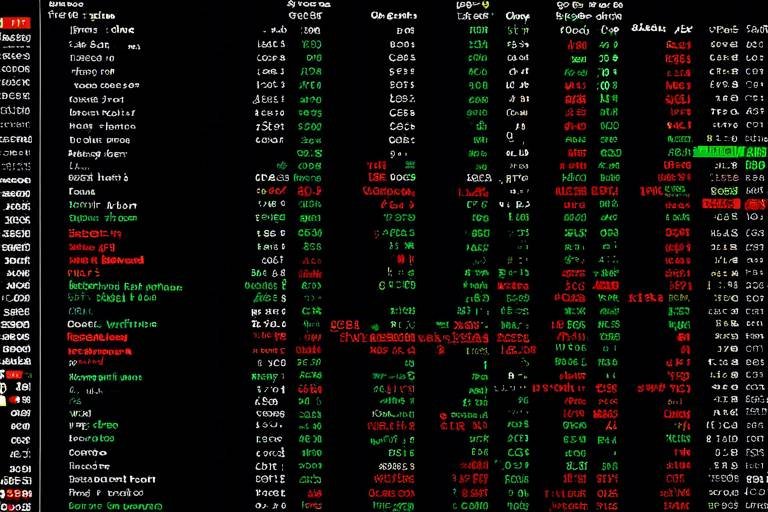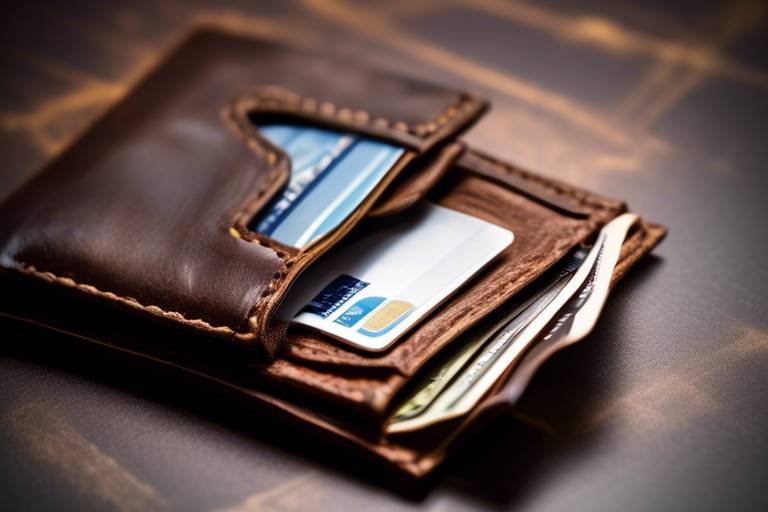How to Avoid Common Security Pitfalls in Crypto Trading
In the ever-evolving world of cryptocurrency trading, ensuring the safety of your investments is more crucial than ever. With the rise of digital currencies, there has also been an alarming increase in security threats that can jeopardize your hard-earned assets. Imagine waking up one day to find that your entire portfolio has vanished due to a simple oversight. Sounds terrifying, right? This article explores essential strategies and practices for securing your cryptocurrency investments, helping you navigate common security threats and ensuring a safer trading experience.
Identifying the various security risks associated with cryptocurrency trading is crucial. The digital landscape is rife with threats that can catch even the most experienced traders off-guard. Common threats include hacking, phishing, and scams. Hacking is perhaps the most notorious, where cybercriminals exploit vulnerabilities in exchanges and wallets to steal funds. Phishing, on the other hand, is a deceptive practice where attackers trick users into revealing sensitive information through fake websites or emails. It's like a digital masquerade ball where the mask hides malicious intent. Lastly, scams, ranging from Ponzi schemes to fake ICOs, can lure you in with promises of high returns, only to leave you empty-handed. Understanding these risks is the first step in crafting a robust security strategy.
Maintaining the security of your cryptocurrency wallet is vital. Think of your wallet as a vault for your digital treasures; if it's not secure, your assets are at risk. Here are some effective practices to keep your wallet safe:
- Use Hardware Wallets: These are physical devices that store your private keys offline, making them less susceptible to online attacks.
- Enable Two-Factor Authentication: Adding an extra layer of security can significantly reduce the chances of unauthorized access.
- Regularly Update Wallet Software: Keeping your software up-to-date ensures you have the latest security features and patches.
Different wallet types offer varying levels of security. It’s essential to explore the pros and cons of hot wallets, cold wallets, and paper wallets to determine which option best suits your trading needs. Hot wallets are convenient for everyday transactions, while cold wallets provide enhanced security for long-term storage. Paper wallets, though less common, can offer a secure offline option if created correctly. Each type has its place in your crypto strategy, depending on how often you trade and your overall risk tolerance.
Understanding the differences between hot and cold wallets can help you make informed decisions about where to store your cryptocurrencies for optimal security and accessibility. Hot wallets are connected to the internet, making them more accessible but also more vulnerable to attacks. Cold wallets, however, are offline and offer a fortress-like security but can be less convenient for quick trades. The choice boils down to balancing security and convenience based on your trading habits.
Multi-signature wallets provide an added layer of security by requiring multiple approvals for transactions. This means that even if one key is compromised, the funds remain secure. It’s like needing multiple keys to open a treasure chest; one key alone won’t do the trick. This section explains how they work and their benefits for traders, especially those managing large sums of money or collaborating with partners.
Phishing is a common tactic used by cybercriminals to steal sensitive information. Learning how to identify phishing emails and websites is essential for safeguarding your crypto accounts from unauthorized access. Always double-check URLs, look for suspicious email addresses, and never click on links from unknown sources. Think of it as a digital minefield; one wrong step could lead to disaster.
Choosing a reputable trading platform is essential for security. Not all exchanges are created equal, and some may cut corners when it comes to security. Look for platforms that prioritize user safety through regulatory compliance, robust security protocols, and positive user reviews. A secure exchange is like a well-guarded fortress; it should offer peace of mind while you trade.
Before trading on any platform, it's crucial to verify their security measures. Discover what security features to investigate, such as encryption, withdrawal limits, and insurance policies. A platform that employs strong encryption methods is like a digital safe; it keeps your information secure from prying eyes. Additionally, withdrawal limits can help prevent large losses in case of a breach.
Regulatory compliance is a key indicator of a secure trading environment. Learn how to assess whether a platform adheres to relevant regulations and what that means for your safety as a trader. A compliant platform is like a ship sailing under a flag; it assures you that it follows the rules and standards set by authorities.
Keeping up with the latest security updates and news in the crypto space is essential. The digital world changes rapidly, and new vulnerabilities can emerge overnight. Subscribe to reputable crypto news sources, follow industry leaders on social media, and participate in forums to stay informed about potential threats and best practices. Knowledge is your best defense in this fast-paced environment.
Q: What is the safest way to store my cryptocurrency?
A: The safest way to store cryptocurrency is by using a hardware wallet, as it keeps your private keys offline and out of reach from hackers.
Q: How can I identify a phishing attempt?
A: Look for suspicious email addresses, check for spelling errors in URLs, and never click on links from unknown sources.
Q: Are all trading platforms secure?
A: No, not all trading platforms are secure. Always research and choose platforms that are regulatory compliant and have positive user reviews.
Q: What is a multi-signature wallet?
A: A multi-signature wallet requires multiple keys to authorize a transaction, providing an additional layer of security.

Understanding Crypto Security Risks
When diving into the world of cryptocurrency trading, it's essential to grasp the myriad of security risks that lurk in the shadows. Think of it like walking through a bustling market; while there are plenty of opportunities, there are also potential pitfalls that can lead to significant losses. The digital landscape is rife with threats, and being aware of them is your first line of defense.
One of the most prevalent threats in the crypto realm is hacking. Cybercriminals are constantly devising new ways to infiltrate wallets and exchanges, aiming to swipe your hard-earned assets. Imagine a thief picking the lock on your front door; they’re looking for any vulnerability they can exploit. To combat this, it's crucial to implement strong password practices and utilize wallets that offer robust security features.
Another common danger is phishing. This deceptive tactic involves tricking users into revealing sensitive information, such as passwords or private keys, often through fake emails or websites that mimic legitimate services. Picture receiving a seemingly innocent email from your favorite exchange, only to find out that it’s a cleverly disguised trap. Being able to recognize these scams is vital. Look for telltale signs such as poor grammar, suspicious links, or requests for sensitive information.
Moreover, scams are an ever-present threat in the cryptocurrency market. From Ponzi schemes to fake investment opportunities, the lure of quick profits can easily cloud judgment. It’s essential to do your due diligence before investing in any project. Always ask yourself: Is this too good to be true? If it feels like a gamble, it probably is.
To summarize, here are some key security risks to keep in mind:
- Hacking: Unauthorized access to wallets and exchanges.
- Phishing: Deceptive attempts to obtain sensitive information.
- Scams: Fraudulent schemes promising unrealistic returns.
By understanding these risks, you empower yourself to make informed decisions. The crypto world can be thrilling, but it also requires a vigilant mindset. Equip yourself with knowledge, and you'll not only navigate the market more effectively but also protect your investments from potential threats.
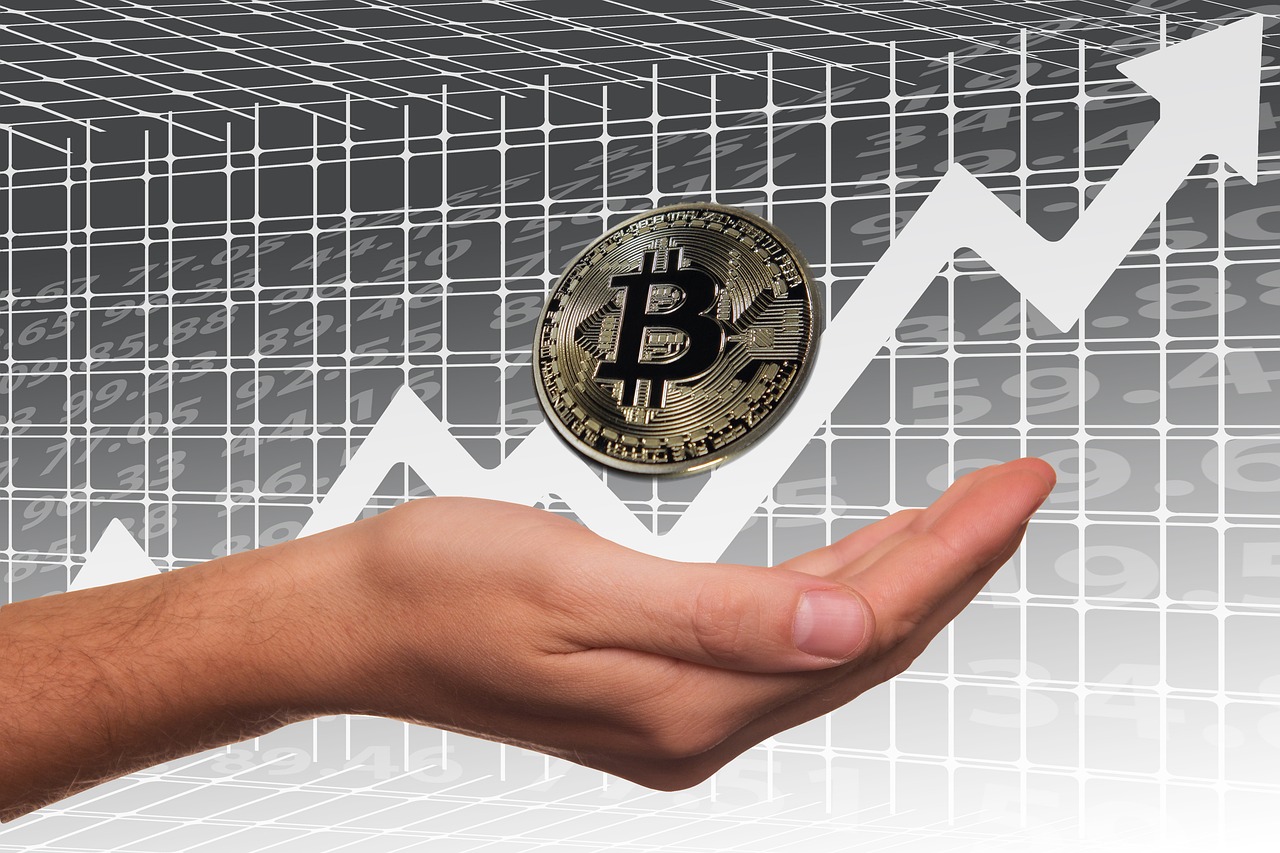
Best Practices for Wallet Security
When it comes to securing your cryptocurrency investments, wallet security is paramount. Think of your wallet as a digital vault; if it's not properly secured, you might as well be leaving the door wide open for thieves. One of the most effective ways to safeguard your assets is by using hardware wallets. These physical devices store your private keys offline, making them far less vulnerable to online attacks compared to software wallets. Imagine trying to break into a safe that’s locked away in a bank vault versus one that’s sitting on your desk—it's a no-brainer!
Another essential practice is enabling two-factor authentication (2FA). This adds an extra layer of security by requiring not only your password but also a second form of verification, such as a code sent to your phone. It’s like having a second lock on your door; even if someone gets hold of your key, they still can’t get in without that second piece of information. Always make sure to choose 2FA methods that are reputable and secure, as some can be vulnerable to social engineering attacks.
Regularly updating your wallet software is also crucial. Just like you wouldn’t drive a car that hasn’t had maintenance in years, you shouldn’t use a wallet that hasn’t been updated. Software updates often include patches for security vulnerabilities that hackers might exploit. By keeping your wallet software up to date, you’re ensuring that you have the latest protections against emerging threats.
Not all wallets are created equal, and understanding the different types can significantly impact your security. Here’s a quick breakdown:
| Wallet Type | Pros | Cons |
|---|---|---|
| Hot Wallets | Easy access, convenient for trading | More vulnerable to hacks |
| Cold Wallets | Highly secure, offline storage | Less convenient for frequent transactions |
| Paper Wallets | Completely offline, immune to online attacks | Risk of physical damage or loss |
Choosing between hot wallets, cold wallets, and paper wallets depends on your trading habits. If you’re actively trading, a hot wallet might be more convenient, but for long-term storage, a cold wallet is usually the way to go. It’s like choosing between a sports car for speed or a tank for durability; each has its purpose.
Hot wallets are connected to the internet and are great for quick transactions, but they come with risks. Cold wallets, on the other hand, are offline and provide a much higher level of security. If you think of hot wallets as a wallet you carry around daily, cold wallets are like a safety deposit box at the bank—secure, but not as easily accessible.
For those who want to take security a step further, consider using multi-signature wallets. These wallets require multiple private keys to authorize a transaction, meaning that even if one key is compromised, your funds are still safe. It’s akin to needing multiple keys to open a safe; without all the keys, the treasure remains locked away. This is especially useful for businesses or groups pooling resources, as it adds a layer of accountability and security.
In summary, securing your cryptocurrency wallet is not just about picking a wallet type; it’s about implementing a comprehensive strategy that includes hardware wallets, 2FA, regular updates, and understanding the nuances of different wallet types. By being proactive and informed, you can significantly reduce your risk of falling victim to common security pitfalls in crypto trading.
- What is the safest type of wallet for cryptocurrency? Cold wallets are generally considered the safest for long-term storage as they are offline and less susceptible to hacks.
- How often should I update my wallet software? Regularly check for updates and apply them as soon as they are available to protect against vulnerabilities.
- Can I use a hot wallet for trading? Yes, hot wallets are convenient for trading, but ensure you transfer funds to a cold wallet for long-term storage.
- What is two-factor authentication? It’s an extra layer of security that requires not just a password but also a second piece of information, like a code sent to your phone.
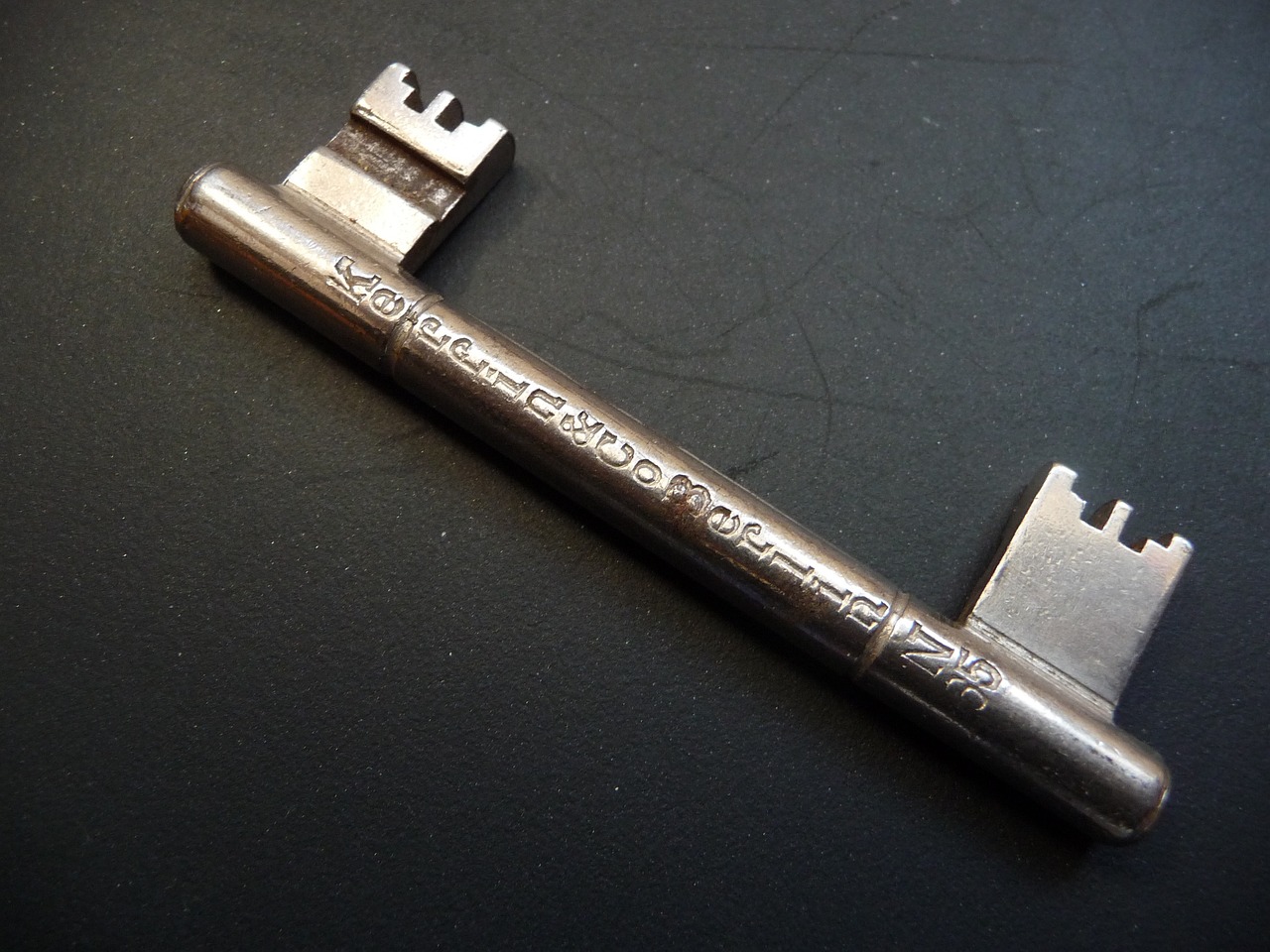
Choosing the Right Wallet Type
When it comes to securing your cryptocurrency, one of the most critical decisions you'll make is choosing the right wallet type. Think of your digital assets as valuable treasures; just like you wouldn't store your gold coins in a cardboard box, you shouldn't keep your cryptocurrencies in just any wallet. There are several types of wallets available, each offering different levels of security, accessibility, and convenience. Understanding these options can help you make an informed choice that aligns with your trading needs and risk tolerance.
First, let's explore the most common wallet types:
- Hot Wallets: These are online wallets that are connected to the internet. They are convenient for frequent trading as they allow quick access to your funds. However, being online also makes them more susceptible to hacking. If you're a trader who makes regular transactions, a hot wallet might be ideal, but be cautious and only store small amounts of cryptocurrency here.
- Cold Wallets: Cold wallets are offline storage solutions, such as hardware wallets or paper wallets. They offer enhanced security since they are not connected to the internet, making them less vulnerable to cyber threats. If you're holding a significant amount of cryptocurrency for the long term, cold wallets are often the recommended choice. They might require a bit more effort to access your funds, but the peace of mind can be worth it.
- Paper Wallets: This is a form of cold storage where your public and private keys are printed on a piece of paper. It’s a secure way to store your crypto, but it comes with risks. If you lose the paper or it gets damaged, you could lose access to your funds permanently. Always ensure to create your paper wallet using a secure and trusted generator.
To make a more informed decision, consider the following factors:
| Wallet Type | Security Level | Best For |
|---|---|---|
| Hot Wallet | Low to Medium | Active Traders |
| Cold Wallet | High | Long-term Holders |
| Paper Wallet | High | Long-term Holders |
Ultimately, the choice of wallet type should align with your trading strategy. If you're actively trading and need quick access to your funds, a hot wallet may be suitable, but remember to keep only what you need for trading. On the other hand, if you’re planning to hold your cryptocurrencies for a longer period, investing in a cold wallet is a wise choice. It’s like choosing between a safe deposit box for your valuable assets and a wallet you carry around daily. Each has its place, and your decision should reflect your individual needs and risk appetite.
In conclusion, understanding the different wallet types and their respective advantages and disadvantages is crucial for any crypto trader. By carefully considering your trading habits and security needs, you can select a wallet that not only protects your investments but also enhances your overall trading experience.
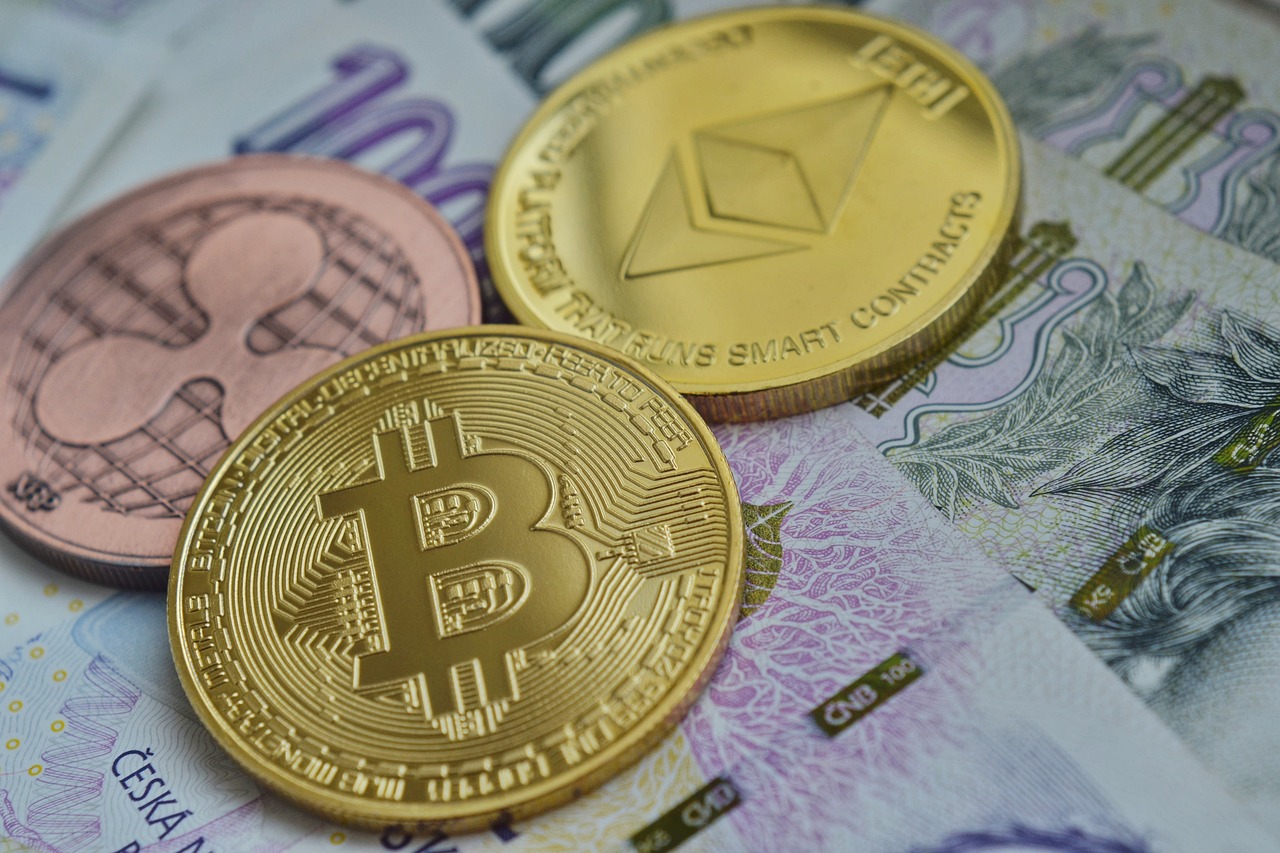
Hot Wallets vs. Cold Wallets
When it comes to securing your cryptocurrency, understanding the difference between hot wallets and cold wallets is absolutely essential. Think of hot wallets as the bustling cafes in a city where you can quickly grab a coffee and chat with friends. They are convenient and easily accessible, allowing you to trade your cryptocurrencies on the fly. However, just like those cafes, they can also attract unwanted attention, making them more vulnerable to attacks.
On the other hand, cold wallets are like a safe hidden away in your home. They are not connected to the internet, which makes them significantly more secure against hacking attempts. Cold wallets store your cryptocurrencies offline, providing a high level of protection for your assets. But remember, while they are great for long-term storage, accessing your funds can be a bit of a hassle, much like having to dig through your closet to find that old family photo album.
To help you visualize the differences, here’s a quick comparison:
| Feature | Hot Wallets | Cold Wallets |
|---|---|---|
| Accessibility | High – easy to access and trade | Low – requires physical access to the device |
| Security Level | Moderate – susceptible to online threats | High – immune to online hacking |
| Best Use Case | Daily trading and transactions | Long-term storage of assets |
So, which one should you choose? It really depends on your trading style and how often you plan to access your cryptocurrency. If you are a frequent trader, a hot wallet might be the way to go. However, if you're looking to hold your assets long-term and prioritize security, a cold wallet is your best bet. Just remember, you can also use both in tandem – keep a small amount in a hot wallet for trading, and store the majority of your assets in a cold wallet for safekeeping.
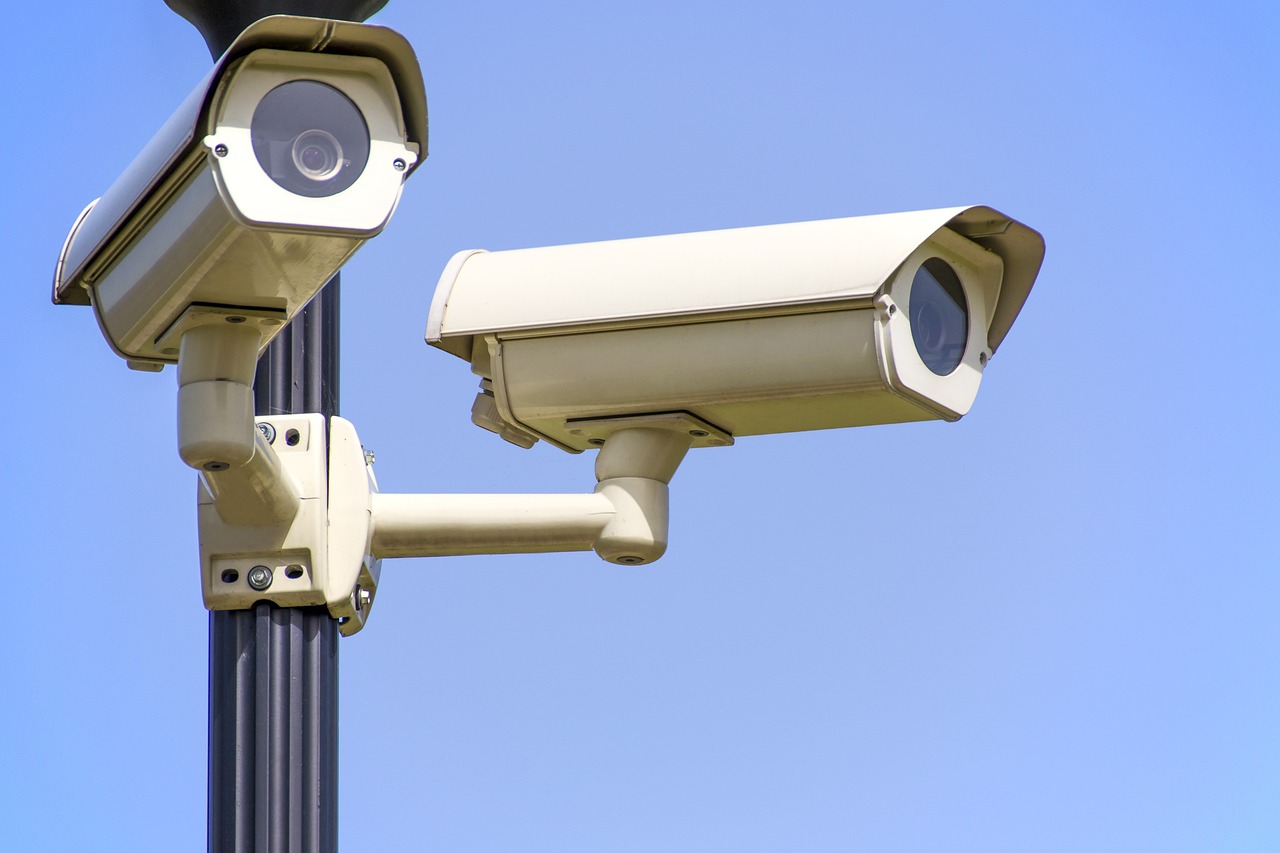
Using Multi-Signature Wallets
When it comes to securing your cryptocurrency assets, multi-signature wallets are like having a fortified vault instead of a simple lock on your front door. This type of wallet requires multiple private keys to authorize a transaction, making it significantly harder for hackers to gain access to your funds. Imagine needing several keys from different people to open a treasure chest; that’s the essence of multi-signature wallets. By distributing control among multiple parties, you can enhance the security of your assets and reduce the risk of theft.
Multi-signature wallets can be particularly useful for businesses or groups of investors who want to manage their funds collaboratively. For example, a startup might set up a wallet that requires approval from three out of five partners before any funds can be moved. This not only increases security but also promotes accountability among the partners. However, it's crucial to choose the right setup; if too many signatures are required, it could complicate transactions and lead to delays.
Here's a quick breakdown of how multi-signature wallets work:
| Key Feature | Description |
|---|---|
| Multiple Keys | Requires more than one private key to authorize transactions. |
| Increased Security | Reduces the risk of unauthorized access since multiple approvals are needed. |
| Flexible Control | Allows groups to manage funds collectively, enhancing transparency. |
To set up a multi-signature wallet, you'll typically need to decide on the number of keys and how many of those keys are required to authorize a transaction. This is often referred to as an M-of-N configuration, where M is the number of required signatures and N is the total number of keys available. For instance, a 2-of-3 wallet means that two signatures are needed out of three possible keys. This flexibility allows you to tailor the wallet to your specific needs and risk appetite.
While multi-signature wallets offer enhanced security, they are not entirely foolproof. Users must still be vigilant against phishing attacks and other security threats. Always ensure that the wallets you use are reputable and have a solid track record. By leveraging the strengths of multi-signature wallets, you can significantly bolster the security of your cryptocurrency investments and enjoy greater peace of mind.
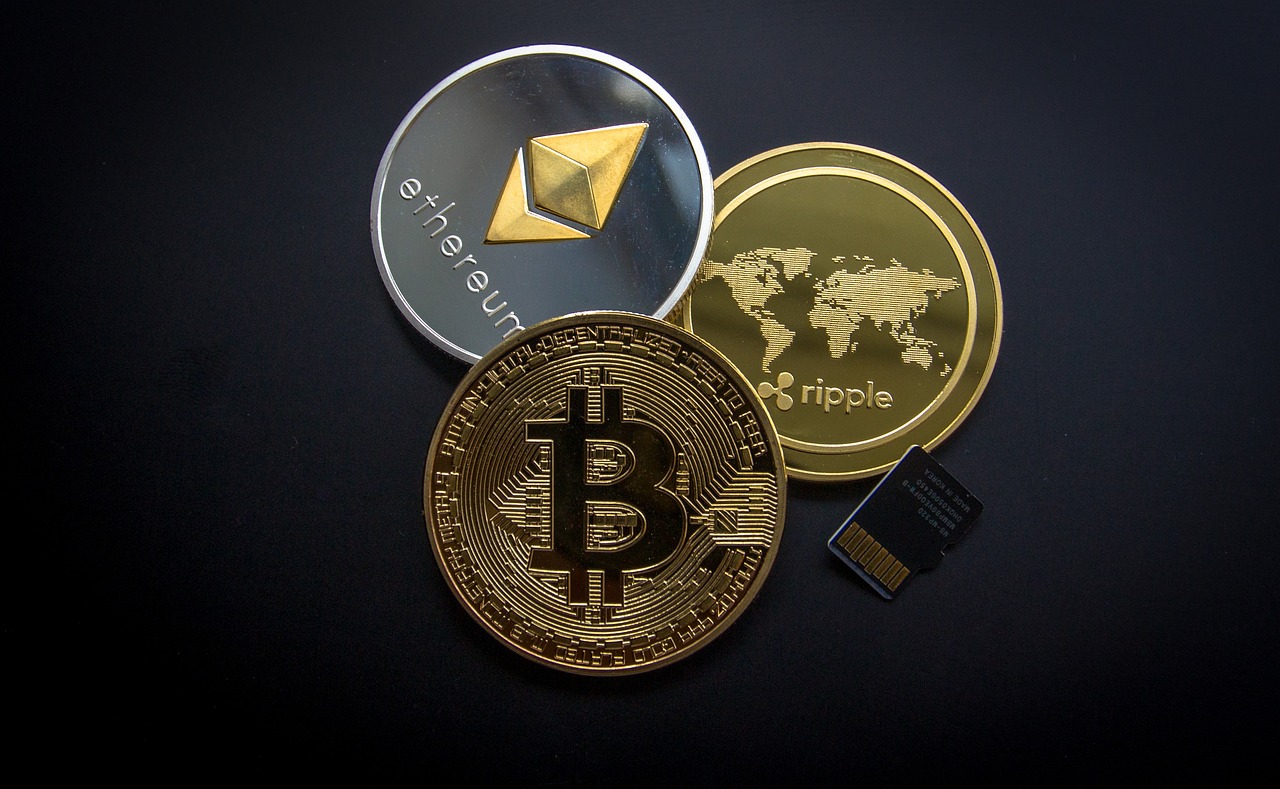
Recognizing Phishing Attempts
In the ever-evolving world of cryptocurrency, phishing has emerged as one of the most insidious threats to traders. Imagine this: you're cruising through your emails, and you spot a message that looks just like it’s from your favorite exchange. The logo is spot on, the language is friendly, and it even addresses you by name. But here’s the catch: it’s a trap! Phishing attempts are designed to mimic legitimate communications to trick you into revealing sensitive information, such as your passwords or private keys. So how do you protect yourself from falling into these digital snares?
First, always examine the sender's email address closely. Phishers often use addresses that are similar to legitimate ones but with slight alterations. For instance, instead of support@yourcryptoexchange.com, you might see support@yourcryptoexhange.com—notice the missing "t"! This simple step can save you from a world of trouble.
Next, be wary of unsolicited messages that urge you to act quickly. Phishing emails often create a sense of urgency, claiming that your account will be locked or that you need to verify your information immediately. This tactic plays on your emotions, pushing you to make hasty decisions without thinking critically. Always take a step back and verify any claims by visiting the official website directly—never click on links in an email.
Another red flag to watch for is poor grammar and spelling. While professional companies strive for polished communication, phishing attempts often contain mistakes that can give them away. If you notice awkward phrasing or typos, it's a strong indicator that the email is not from a legitimate source. Trust your instincts; if something feels off, it probably is.
Moreover, be cautious about any requests for personal information. Legitimate exchanges will never ask for sensitive data like your password or private keys via email. If you receive such a request, consider it a phishing attempt. Instead, log into your account through the official website and check for any notifications directly there.
To help you recognize phishing attempts better, here’s a quick reference table summarizing key signs of phishing emails:
| Signs of Phishing Emails | What to Look For |
|---|---|
| Suspicious Email Address | Check for slight variations in domain names. |
| Urgent Calls to Action | Beware of messages that pressure you to act quickly. |
| Poor Grammar and Spelling | Look for typos and awkward wording. |
| Requests for Personal Information | Legitimate companies won't ask for sensitive data via email. |
Finally, always ensure that your devices are equipped with the latest security software. This can help detect malicious emails before they reach your inbox. In a world where cyber threats are becoming increasingly sophisticated, being proactive about your security is your best defense. Remember, it's better to be safe than sorry! By keeping these tips in mind, you’ll be better equipped to navigate the crypto landscape without falling prey to phishing scams.
- What should I do if I suspect a phishing attempt? Immediately report the email to your exchange and do not click on any links.
- Can I recover my funds if I fall for a phishing scam? Recovery is often difficult, so it's crucial to act quickly and contact your exchange.
- How can I verify the authenticity of an email from my exchange? Always go directly to the exchange's website and check your account notifications.
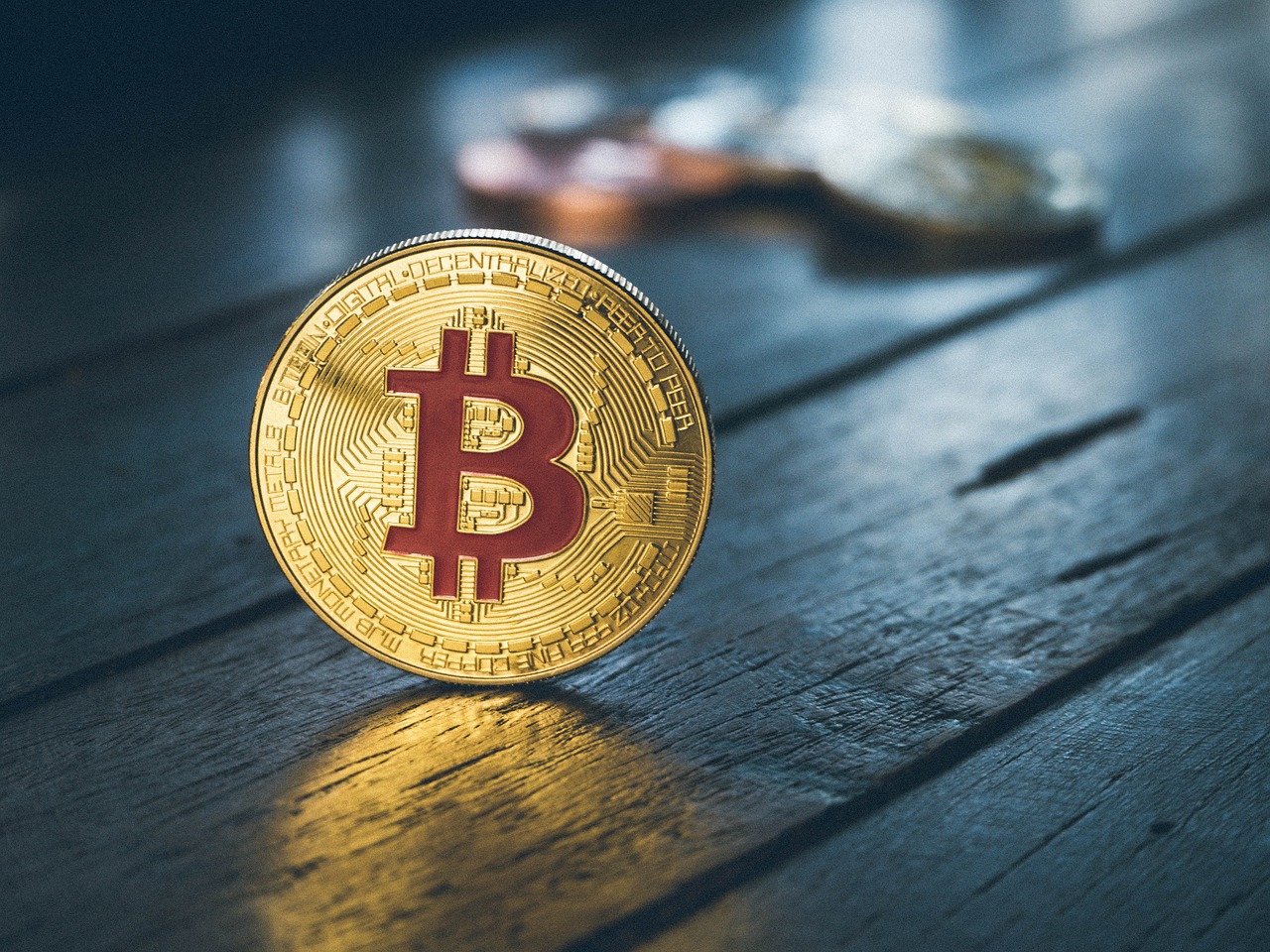
Secure Trading Platforms
When it comes to cryptocurrency trading, selecting a reputable trading platform is not just a choice; it's a necessity. The digital landscape is fraught with risks, and your trading platform serves as the gatekeeper to your assets. Imagine walking into a bank that has no security measures in place—would you feel comfortable leaving your money there? Similarly, a secure trading platform should provide robust protections to keep your investments safe from prying eyes and malicious actors.
So, what exactly should you look for when evaluating a trading platform? First and foremost, you want to ensure that the platform is regulated. Regulatory compliance often indicates a level of oversight that can protect traders. Think of it as a safety net; it doesn't guarantee that nothing will go wrong, but it certainly decreases the likelihood of fraud. Look for platforms that are registered with recognized authorities and have clear operational guidelines.
Another critical feature to consider is the platform's security protocols. A trustworthy exchange should employ advanced security measures such as encryption, which scrambles your data to keep it safe from hackers. Additionally, check if the platform has implemented withdrawal limits and insurance policies to cover potential losses. These features act like alarm systems; they might not prevent a break-in, but they can certainly minimize the damage.
To help you understand what to look for in a secure trading platform, here's a table summarizing key features:
| Feature | Description | Importance |
|---|---|---|
| Regulatory Compliance | Adherence to laws and regulations set by authorities. | High - Provides a safety net for traders. |
| Encryption | Data scrambling to protect sensitive information. | High - Prevents unauthorized access. |
| Withdrawal Limits | Restrictions on how much can be withdrawn at once. | Medium - Reduces risk of large thefts. |
| Insurance Policies | Coverage for potential losses due to hacking. | High - Offers peace of mind. |
Additionally, consider the user reviews and community feedback about the platform. Just like you wouldn't buy a car without reading reviews, you shouldn't trade on a platform without understanding what others have experienced. Look for platforms with a solid reputation and positive testimonials. A good platform will not only have a responsive customer service team but also a community that feels safe and valued.
In summary, when you’re choosing a trading platform, think of it as choosing a partner for a high-stakes game. You want someone who plays fair, has your back, and is equipped to handle any challenges that come your way. By focusing on security features, regulatory compliance, and community feedback, you can make an informed decision that will help safeguard your crypto investments.
- What is the most secure type of trading platform? Generally, platforms that are regulated and have robust security protocols are considered the most secure.
- How can I verify if a platform is regulated? You can check the platform's website for regulatory information or look it up on the relevant regulatory authority's website.
- Are all trading platforms the same? No, they vary significantly in terms of security measures, user experience, and available cryptocurrencies.
- What should I do if I suspect a security breach? Immediately change your passwords, enable two-factor authentication, and contact the platform's customer support.

Verifying Exchange Security Measures
When diving into the world of cryptocurrency trading, one of the most crucial steps you can take is to verify the security measures of the exchange you plan to use. Think of it as checking the locks on your front door before leaving your house; you want to ensure that your investments are safe and sound. There are several key features that you should investigate to gauge the level of security an exchange offers.
First and foremost, encryption is a vital component of any secure trading platform. Look for exchanges that utilize advanced encryption technologies, such as SSL (Secure Socket Layer) protocols, to protect your data during transactions. This is akin to wrapping your personal information in a protective bubble, shielding it from prying eyes. If an exchange does not provide clear information about its encryption methods, consider it a red flag.
Another important aspect to check is the presence of withdrawal limits. Many reputable exchanges impose withdrawal limits to prevent large sums from being taken out in a single transaction, especially if an account is compromised. This feature acts like a safety net, ensuring that even if your account is hacked, the potential loss is minimized. Always review the limits set by the exchange and ensure they align with your trading habits.
Additionally, it’s wise to look into whether the exchange has an insurance policy in place. Some platforms offer insurance for digital assets, which means that in the unfortunate event of a security breach, your funds may be covered. This is like having an insurance policy on your home; it provides peace of mind knowing that you have a safety net if things go wrong. Make sure to read the fine print to understand what is and isn’t covered.
Moreover, user reviews can provide valuable insights into the exchange's reliability and security. Websites like Trustpilot or Reddit can be gold mines for real user experiences. If you notice a pattern of complaints regarding security breaches or poor customer service, it might be wise to steer clear of that platform. Think of it as asking friends for restaurant recommendations; you want to go where others have had good experiences.
In summary, verifying the security measures of a cryptocurrency exchange is not just a precaution—it's a necessity. By focusing on encryption, withdrawal limits, insurance policies, and user feedback, you can make informed decisions that protect your investments. Remember, in the world of crypto, being proactive about security can save you from potential headaches down the road.
- What should I look for in a secure exchange? Focus on features like encryption, withdrawal limits, insurance policies, and user reviews.
- Is it safe to use a hot wallet for trading? Hot wallets are convenient but less secure than cold wallets; they are best used for small amounts or day-to-day trading.
- How often should I check for security updates? Regularly—at least once a week or whenever you hear about vulnerabilities in the crypto space.
- What is two-factor authentication (2FA)? 2FA adds an extra layer of security by requiring a second form of identification, such as a text message code, in addition to your password.

Understanding Regulatory Compliance
When it comes to trading cryptocurrencies, regulatory compliance is more than just a buzzword—it's a critical aspect of ensuring your trading environment is safe and secure. Think of it as the guardrails on a winding mountain road; they’re there to keep you from veering off into danger. In the cryptocurrency world, regulations vary significantly by region, and understanding these can help you navigate the complex landscape of crypto trading.
Regulatory compliance involves adhering to laws and guidelines set by government authorities to protect investors and maintain the integrity of the financial system. This can include everything from anti-money laundering (AML) measures to know your customer (KYC) requirements, which are designed to prevent fraud and illicit activities. For instance, a compliant exchange may require you to verify your identity before you can start trading, ensuring that they know who is using their platform.
But why should you care about regulatory compliance? Well, a platform that adheres to regulations is often seen as more trustworthy. It’s like choosing a restaurant with health inspections over one that has a questionable hygiene record. You want to ensure that your funds are safe and that the platform operates transparently. Here are some key indicators to look for:
- Licensing: Ensure the exchange is licensed and regulated by a recognized authority.
- Transparency: Look for clear information about fees, policies, and security measures.
- Security Features: Check for robust security protocols, including encryption and two-factor authentication.
Moreover, understanding the regulatory landscape can also help you avoid potential legal issues. As governments around the world tighten their grip on cryptocurrency regulations, being informed can save you from hefty fines or worse. It’s like staying updated on traffic laws; ignorance won't get you off the hook if you get pulled over!
In summary, regulatory compliance is a vital component of a secure trading environment. By choosing exchanges that prioritize compliance, you not only protect your investments but also contribute to a healthier crypto ecosystem. Remember, a little research goes a long way in ensuring your trading experience is as smooth as possible.
- What is regulatory compliance in cryptocurrency? Regulatory compliance refers to the adherence to laws and regulations set by government authorities to ensure safe trading practices.
- Why is regulatory compliance important? It helps protect investors, maintain market integrity, and reduces the risk of fraud and legal issues.
- How can I identify a compliant trading platform? Look for licensing, transparency in operations, and strong security measures.

Staying Informed About Security Updates
In the fast-paced world of cryptocurrency, staying informed about security updates is not just a good practice; it’s a necessity. The landscape of digital assets is constantly evolving, with new threats emerging almost daily. Just like a seasoned sailor keeps an eye on the weather to avoid storms, you too must keep your radar up for potential vulnerabilities that could impact your investments. But how do you stay updated in such a rapidly changing environment?
First and foremost, consider subscribing to reputable cryptocurrency news platforms and security blogs. These sources often provide timely updates on security breaches, software vulnerabilities, and best practices for safeguarding your assets. Some popular sources include:
- CoinDesk - Offers comprehensive news and analysis on the crypto market.
- CryptoSlate - Features updates on blockchain technology and security issues.
- Medium - Many security experts share insights and articles on this platform.
Additionally, joining online forums and communities can be incredibly beneficial. Places like Reddit and specialized Discord servers often have real-time discussions about emerging threats and security best practices. Engaging with other traders can provide you with valuable insights and tips that you might not find in traditional news sources.
Another effective strategy is to follow official social media accounts of cryptocurrency projects and exchanges. These platforms often post urgent updates regarding security issues, system maintenance, and other critical information that could affect your trading. Be sure to verify that you are following the official accounts to avoid falling prey to impersonators.
Moreover, consider setting up alerts for specific keywords related to cryptocurrency security. Tools like Google Alerts allow you to receive notifications whenever there’s news about topics you care about, such as “crypto hacks” or “wallet security breaches.” This proactive approach ensures that you are always in the loop, ready to take action if necessary.
Lastly, attending webinars and conferences can also keep you informed about the latest in crypto security. These events often feature industry experts who share their knowledge on current trends and future predictions. By participating, you not only gain insights but also expand your network, connecting with like-minded individuals who prioritize security.
In summary, staying informed about security updates in the cryptocurrency space is crucial for protecting your investments. By leveraging news platforms, engaging with communities, following official accounts, setting alerts, and attending events, you can arm yourself with the knowledge needed to navigate the sometimes treacherous waters of crypto trading.
Q1: Why is it important to stay informed about security updates in crypto trading?
A: Staying informed helps you recognize potential threats and vulnerabilities, allowing you to take proactive measures to protect your investments.
Q2: What are some reliable sources for cryptocurrency security news?
A: Some reliable sources include CoinDesk, CryptoSlate, and various blogs on Medium. Joining forums like Reddit can also provide community insights.
Q3: How can I set up alerts for cryptocurrency security news?
A: You can use tools like Google Alerts to receive notifications for specific keywords related to cryptocurrency security.
Q4: Are webinars and conferences worth attending for crypto security updates?
A: Yes, these events often feature industry experts and provide valuable insights into current trends and future predictions in crypto security.
Frequently Asked Questions
- What are the common security risks in crypto trading?
In the world of cryptocurrency, traders face various security risks, including hacking, phishing, and scams. Cybercriminals often target traders to steal sensitive information or funds. Understanding these risks is crucial for anyone looking to invest in cryptocurrencies.
- How can I secure my cryptocurrency wallet?
Securing your cryptocurrency wallet is essential for protecting your assets. Best practices include using hardware wallets, enabling two-factor authentication, and regularly updating your wallet software. These measures help safeguard your investments against unauthorized access.
- What is the difference between hot wallets and cold wallets?
Hot wallets are connected to the internet, making them more convenient for trading but also more vulnerable to attacks. Cold wallets, on the other hand, are offline and provide greater security. Choosing the right type of wallet depends on your trading habits and security needs.
- What are multi-signature wallets and how do they work?
Multi-signature wallets require multiple approvals for transactions, adding an extra layer of security. This means that even if one key is compromised, unauthorized transactions cannot occur without the other keys. They are particularly beneficial for teams or individuals managing significant funds.
- How can I identify phishing attempts?
Phishing attempts often come in the form of fraudulent emails or fake websites that mimic legitimate platforms. Look for suspicious URLs, poor grammar, or requests for sensitive information. Always verify the authenticity of communications before taking any action.
- What should I look for in a secure trading platform?
When choosing a trading platform, check for regulatory compliance, positive user reviews, and robust security protocols. Features like encryption, withdrawal limits, and insurance policies are also indicators of a secure environment for trading.
- How do I verify the security measures of an exchange?
Before trading on any platform, investigate their security features. Look for information on encryption methods, two-factor authentication, and any insurance policies they may have in place to protect your funds from potential breaches.
- Why is regulatory compliance important in crypto trading?
Regulatory compliance is crucial because it indicates that a trading platform adheres to specific legal standards, which can enhance your safety as a trader. It often means the platform is subject to oversight and must follow established security practices.
- How can I stay informed about the latest security updates?
Staying informed is key to protecting your investments. Follow reputable news sources, subscribe to security alerts from your wallet or exchange, and engage with online communities focused on cryptocurrency security. This will help you stay ahead of potential vulnerabilities and emerging threats.


